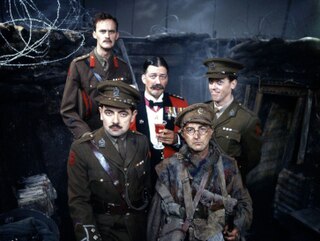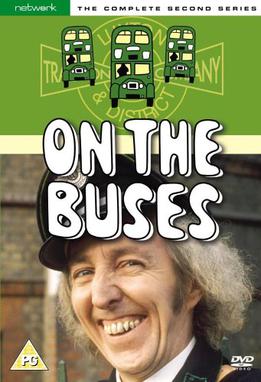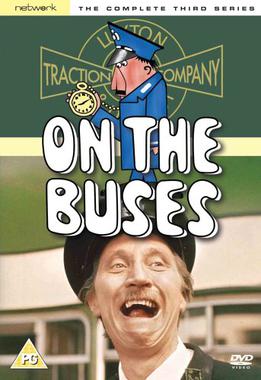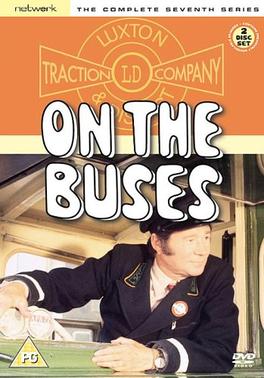
Blackadder is a series of four period British sitcoms, plus several one-off instalments, which originally aired on BBC1 from 1983 to 1989. All television episodes starred Rowan Atkinson as the antihero Edmund Blackadder and Tony Robinson as Blackadder's dogsbody, Baldrick. Each series was set in a different historical period, with the two protagonists accompanied by different characters, though several reappear in one series or another, e.g., Melchett, Lord Percy Percy / Captain Darling and George.
Detective Chief Inspector Endeavour Morse, GM, is the eponymous fictional character in the series of detective novels by British author Colin Dexter. On television, he appears in the 33-episode drama series Inspector Morse (1987–2000), in which John Thaw played the character, as well as the (2012–2023) prequel series Endeavour, portrayed by Shaun Evans. The older Morse is a senior Criminal Investigation Department (CID) officer with the Thames Valley Police in Oxford in England and, in the prequel, Morse is a young detective constable rising through the ranks with the Oxford City Police and, in later series, the Thames Valley Police.

Press Gang is a British children's television comedy-drama consisting of 43 episodes across five series that were broadcast from 1989 to 1993. Produced by Richmond Film & Television for Central, it screened on the ITV network in its regular weekday afternoon children's strand, CITV, typically in a 4:45 pm slot.
A British sitcom or a Britcom is a situational comedy programme produced for British television.
Chesney and Wolfe, were a British television comedy screenwriting duo consisting of Ronald Chesney and Ronald Wolfe. They were best known for their sitcoms The Rag Trade, Meet the Wife (1963–1966), On the Buses (1969–1973) and Romany Jones (1972–1975). When their partnership began in the mid-1950s, Chesney was already known to the public as a harmonica player.

St. Elsewhere is an American medical drama television series created by Joshua Brand and John Falsey that originally ran on NBC from October 26, 1982, to May 25, 1988. The series stars Ed Flanders, Norman Lloyd, and William Daniels as teaching doctors at an aging, run-down Boston hospital who give interns a promising future in making critical medical and life decisions. The series was produced by MTM Enterprises, which had success with a similar NBC series, the police drama Hill Street Blues, during that same time. The series were often compared to each other for their use of ensemble casts and overlapping serialized storylines.

On the Buses is a British television sitcom that was broadcast on ITV from 1969 to 1973. It was created by Ronald Chesney and Ronald Wolfe, who wrote most of the episodes. It spawned three spin-off feature films and a stage version. Despite the writers' previous successes with The Rag Trade and Meet the Wife with the BBC, the corporation rejected On the Buses, not seeing much comedy potential in a bus depot as a setting. The comedy partnership turned to Frank Muir, head of entertainment at London Weekend Television (LWT), who loved the idea; the show was accepted, and despite a poor critical reception became a hit with viewers.

Stephen Lewis, credited early in his career as Stephen Cato, was an English actor, comedian, director, screenwriter and playwright. He is best known for his roles as Inspector Cyril "Blakey" Blake in On the Buses, Clem "Smiler" Hemmingway in Last of the Summer Wine and Harry Lambert in Oh, Doctor Beeching!, although he also appeared in numerous stage and film roles.

Michael Anthony Robbins was an English actor and comedian best known for his role as Arthur Rudge in the TV sitcom and film versions of On the Buses (1969–73).

Robert St Clair Grant was an English actor, comedian and writer, best known for playing bus conductor Jack Harper in the television sitcom On the Buses, as well as its film spin-offs and stage version.

Ann Harrison McCall, professionally known as Anna Karen, was a British actress best known for playing Olive Rudge in the ITV sitcom On the Buses from 1969 to 1973 including its film spin-offs and stage version and Aunt Sal in the BBC soap opera EastEnders on a recurring basis from 1996 to 2017. She also reprised the role of Olive Rudge in The Rag Trade from 1977 to 1978, while her film roles included parts in two Carry On films: Carry On Camping (1969) and Carry On Loving (1970).

On the Buses is a 1971 British comedy film directed by Harry Booth and starring Reg Varney, Doris Hare, Michael Robbins, Anna Karen, Stephen Lewis and Bob Grant. It was the first spin-off film from the TV sitcom On the Buses and was followed by two further films, Mutiny on the Buses (1972) and Holiday on the Buses (1973).

Mutiny on the Buses is a 1972 British comedy film directed by Harry Booth and starring Reg Varney, Doris Hare, Michael Robbins, Anna Karen, Stephen Lewis and Bob Grant. It was produced by Ronald Chesney and Ronald Wolfe for Hammer Films. The film is the second spin-off film from the TV sitcom On the Buses and succeeded On the Buses (1971). It was followed by a third film, Holiday on the Buses (1973). Mutiny on the Buses, while not as successful at the box office as the first, still came 17th in the 1972 box office.

Holiday on the Buses is a 1973 British comedy film directed by Bryan Izzard and starring Reg Varney, Doris Hare, Michael Robbins, Anna Karen, Stephen Lewis and Bob Grant. It was produced by Ronald Chesney and Ronald Wolfe for Hammer Films, and is the third and final spin-off film from the ITV sitcom On the Buses. It succeeded the films On the Buses (1971) and Mutiny on the Buses (1972). A fourth film was planned but cancelled.

The first series of On the Buses originally aired between 28 February 1969 and 11 April 1969, beginning with "The Early Shift". The series was produced and directed by Stuart Allen. The designer for the first three episodes was David Catley, and Andrew Gardner for the rest of the episodes. All the episodes in this series were written by Ronald Chesney and Ronald Wolfe.

The second series of On the Buses originally aired between 31 May 1969 and 5 July 1969, beginning with "Family Flu". The series was produced and directed by Stuart Allen, and the designer was Andrew Gardner. All the episodes in this series were written by Ronald Chesney and Ronald Wolfe.

The third series of On the Buses originally aired between 2 January 1970 and 27 March 1970, beginning with "First Aid". The series was produced and directed by Stuart Allen for the first ten episodes. The last three episodes were directed by Howard Ross and produced by Stuart Allen. The designer for the series was Andrew Gardner. All the episodes in this series were written by Ronald Chesney and Ronald Wolfe.

The fourth series of On the Buses originally aired between 27 November 1970 and 21 February 1971, beginning with "Nowhere to Go". The series was produced and directed by Stuart Allen and designed by Alan Hunter-Craig. All the episodes in this series were written by Ronald Chesney and Ronald Wolfe.

The fifth series of On the Buses originally aired between 19 September 1971 and 26 December 1971, beginning with "The Nursery". The series was produced and directed by Derrick Goodwin and designed by Alan Hunter-Craig. All the episodes in this series were written by Ronald Chesney and Ronald Wolfe except for episodes thirteen and fourteen which were written by Bob Grant and Stephen Lewis.

The seventh and final series of On the Buses originally aired between 26 February 1973 and 20 May 1973, beginning with "Olive's Divorce". The series producer and director was Bryan Izzard. Various people wrote the episodes of this series. Arthur Rudge never appears in this series and Stan Butler only appears until halfway through the series.

















